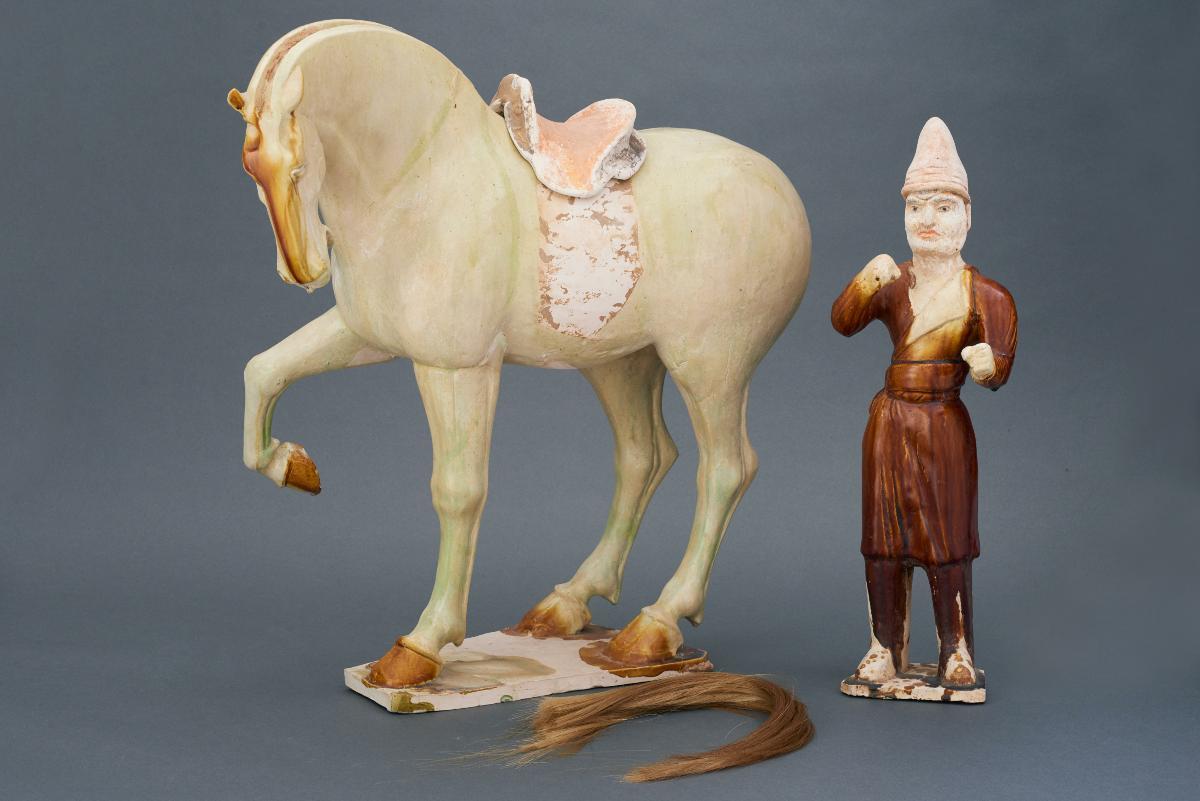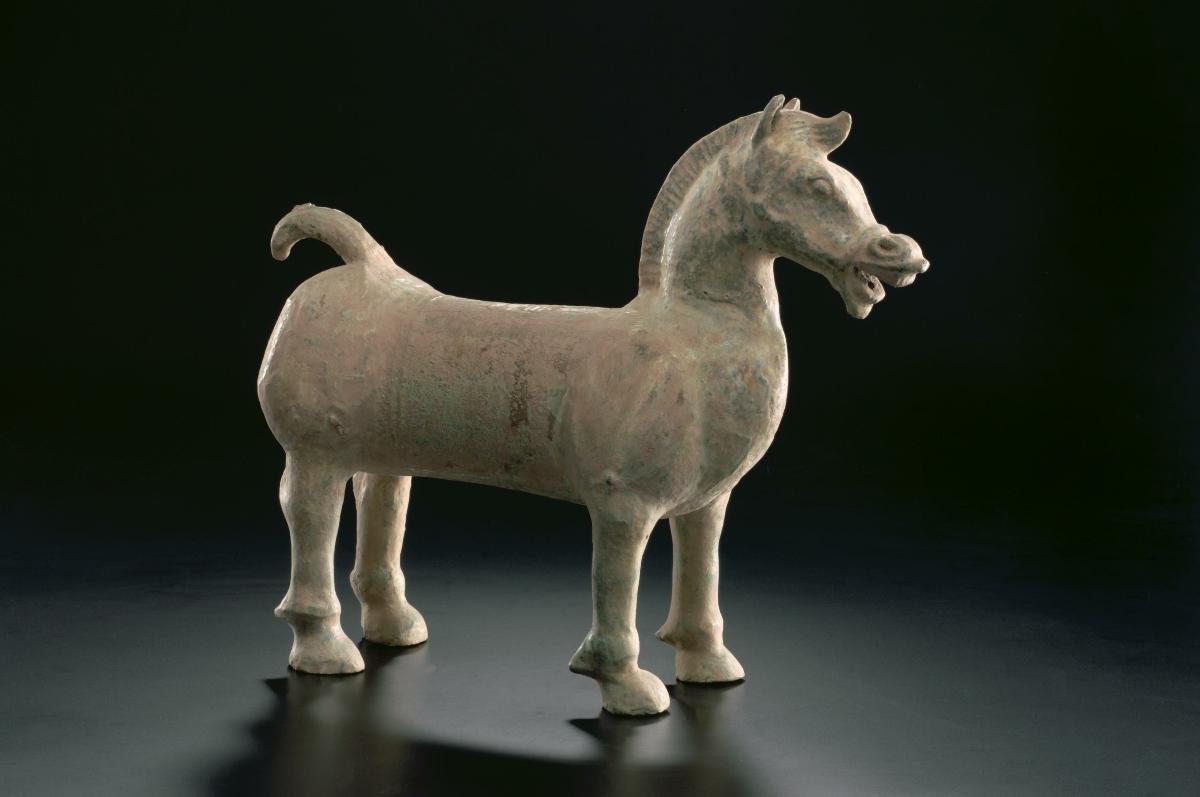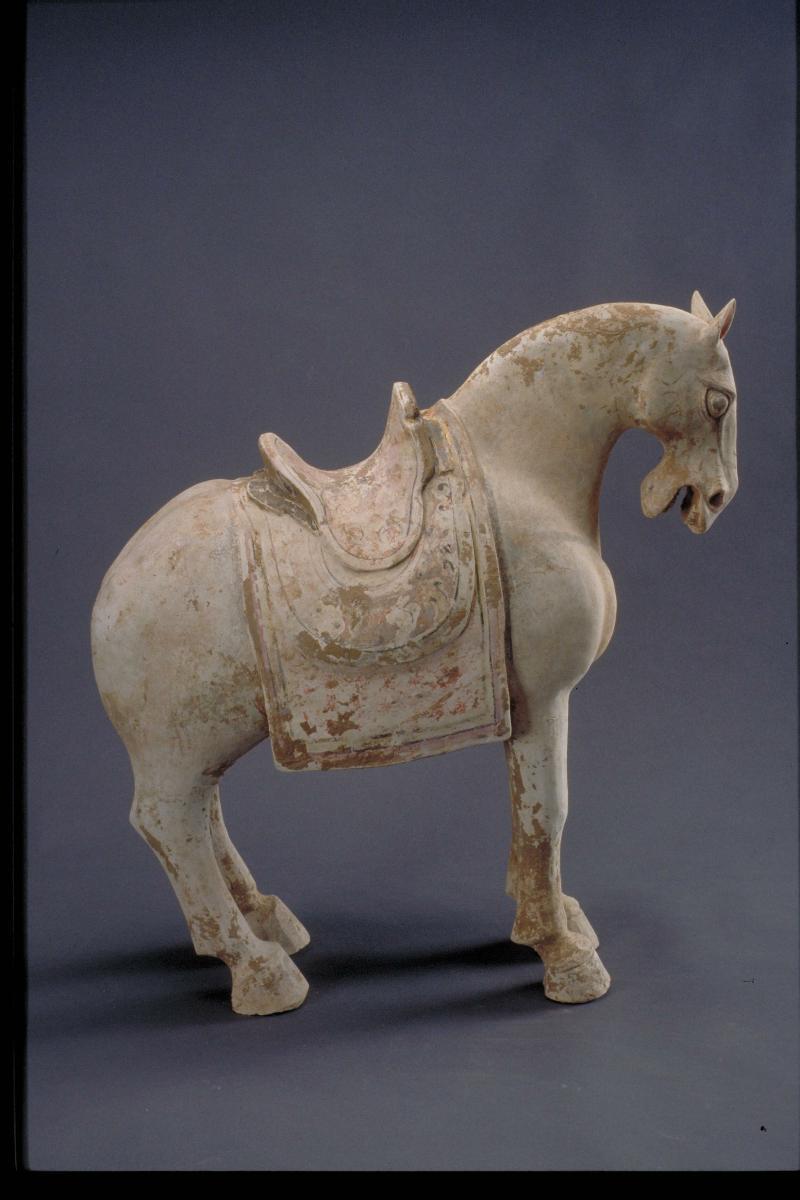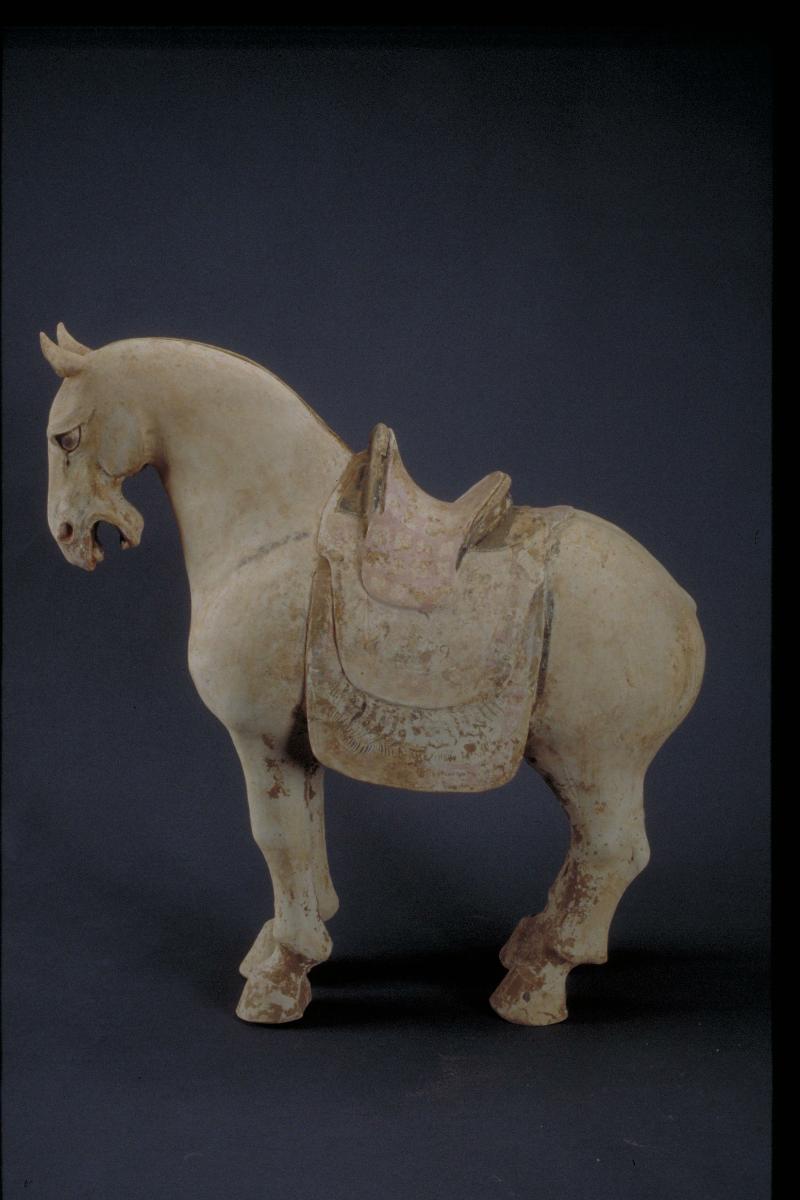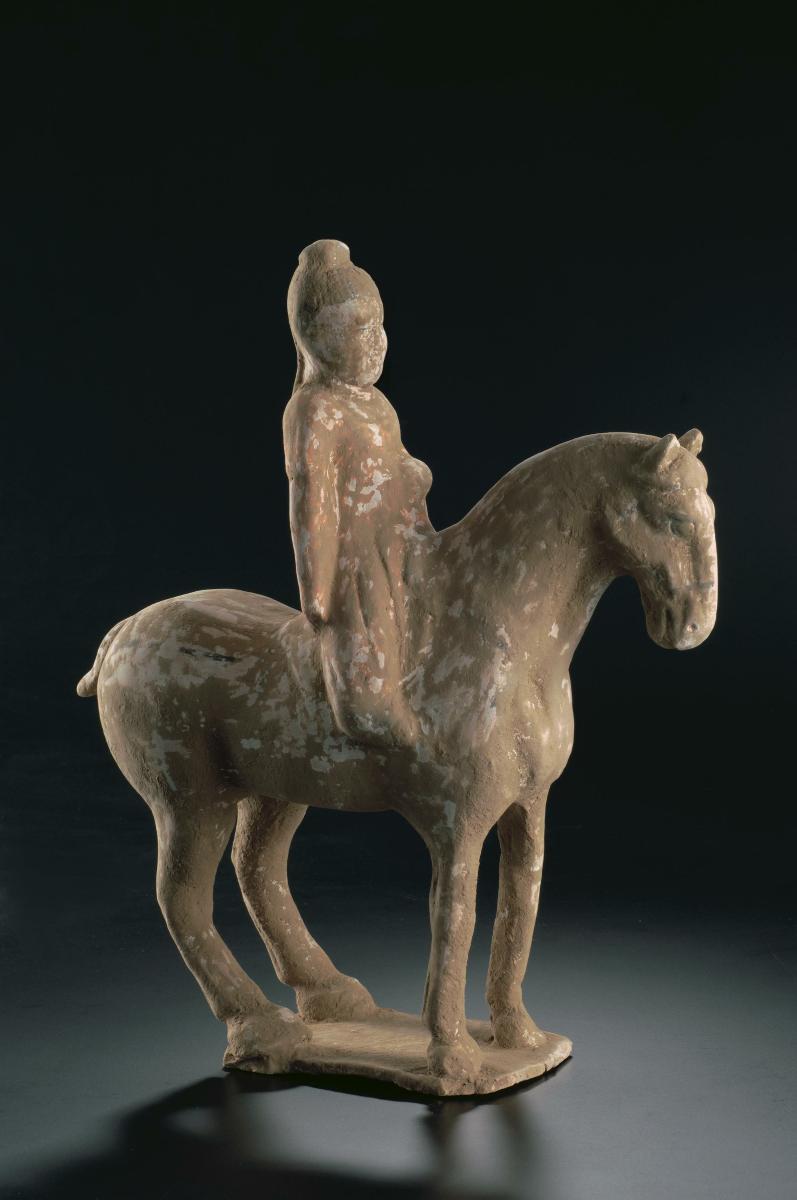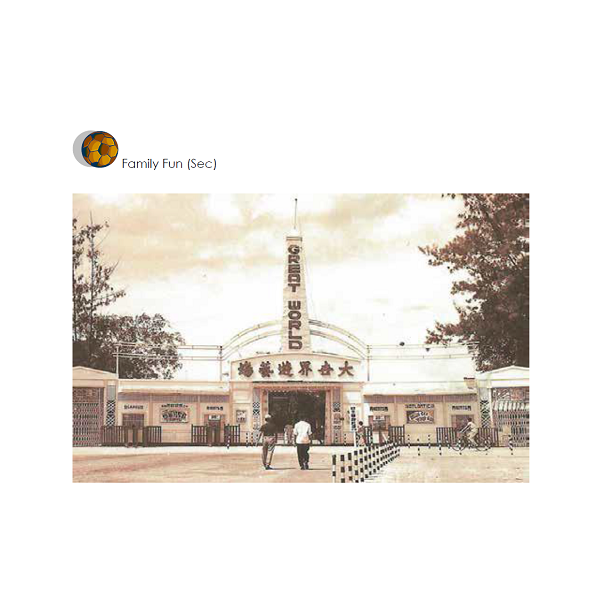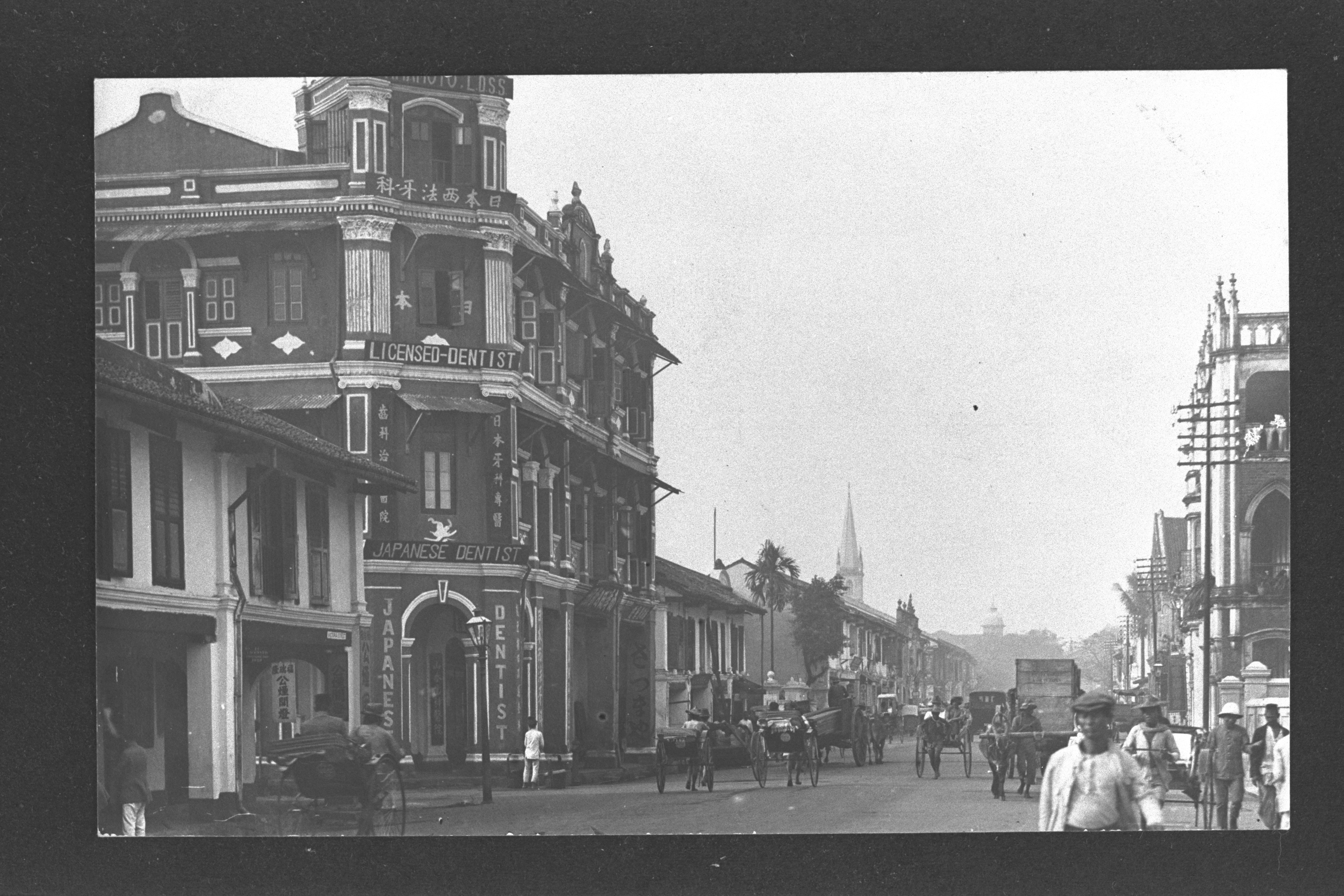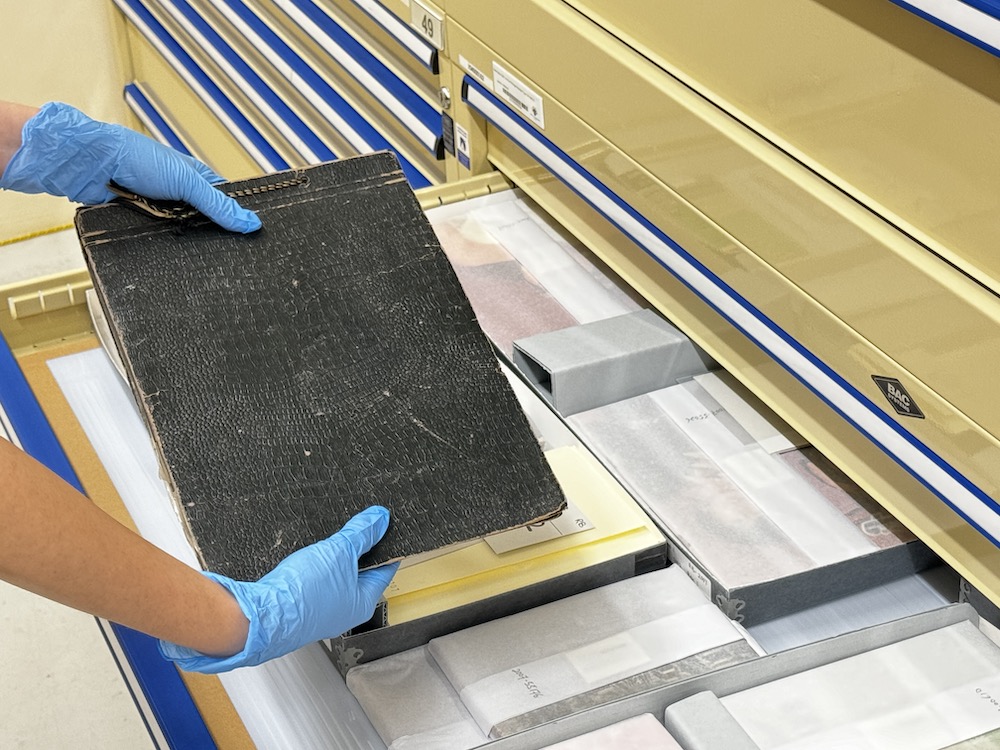Object size: 001: L58.0 x W20.0 x H56.0 cm,
Object size: 002: L42.0 cm,
Object size: 003: L14.5 x W13.5 x H9.0 cm
This lead-glazed or 'sancai' (‘three colour’) horse with pigment-painted hoofs and a partially broken saddle would have been part of a group of pottery tomb figures. The practice of using lead-glazed burial wares had already started during the Han dynasty (206 BCE-220 CE). This glaze technology further developed during the Tang dynasty (618-906) into ‘sancai’ (‘three-colour’) glaze. It included colours such as cream, amber, brown and blue. This tradition of decoration continued into the Ming period. The importance of horses to the Chinese ruling class can be seen in the large numbers of pottery sculptures that have been found in Chinese tombs. Apart from military uses, the horse also played a central role in the long-distance trade over the Silk Road.




